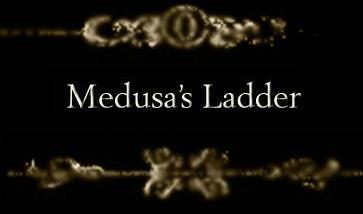|
|
|
|
|
|
|


|
7.25.8
He'll rip your Lungs out, Jim: Thoughts on Black Dog Syndrome
I recently read an article the newspaper entitled 'Large black dogs often go unwanted at the nation's animal shelters.' I thought it had an air of urban-legendness about it, or at the least some kind of dubious anthropomorphic social projection having to do with racial dynamics. So, doing some lazy research, I found nothing to debunk it at Snopes.com, but did find websites confirming the article's assertions about the plight of the so-called Big Black Dog. Below is taken from the blackpearldogs.com site: Big Black Dogs are harder to place…many shelters nationally were stating this on their homepages, some coined it "Black Dog Syndrome". Petfinder made a banner specific to the issue "Did you know that large black dogs are the last to be adopted?" So, all arguments for social projection aside, it does seem to be a 'real' issue. After all, as the original article I read points out: The idea of a big, black dog unleashing destruction is a common theme in books, movies and folklore as diverse as "The Hound of the Baskervilles," the "Harry Potter" series and "The Omen." What the article doesn't allude to is why black dogs are so commonly featured and used in such ways. The human-dog relationship is very concrete and obvious—dogs are 'man's best friend', after all. Exploring the relationship on a deeper level, however, it's obvious there's more than simple, functional companionship going on. There's an ultimate relationship here, one of fusion, that's been created over millennia—that is, the werewolf. The idea of folkloric, archetypal hybridization of humans is not to be taken lightly. The major hybrids are absolutely elemental, and speak of our various symbioses: mermaids tell of our relationship to the oceans and waters, bigfoot to our origins, greenman to nature itself, alien hybrid starchilds to our universe, etc. With the werewolf, the idea of transformation, of shapeshifting, is arguably the dominant feature; I can't think of a werewolf movie or story in which the act of shifting is not a big, dramatic focus. Under a full moon, buttons pop, faces sickly contort, claws bust through flesh—you know it well. Werewolves are all about shapeshifting to and fro, and it's no small point that shapeshifting is a quality of the Trickster, a creature of liminality. In a brilliant well-researched essay, "Black Dogs, guardians of the corpse ways," Bob Trubshaw explores this liminal nature of the dog: …archaeological evidence and mythology brings recurring examples of a very specific role for dogs. They are the 'psychopomps', the guides on the paths to the Otherworld, the guardians of the 'liminal' zone at the boundaries of the worlds. Then, specifically addressing the hellhound, he writes: The essence of the hellhound is his intermediary position - at the border of this world and next, between life and death, hope and fear, and also (given its pairing with the dog of life) between good and evil. For this role, the dog is perfectly suited, being the domestic species par excellence, the tamed carnivore who stands midway between animal and human, savagery and civilization, nature and culture. With all this potent and profound dog mythology floating around in the collective unconscious, I suppose it's not entirely a stretch to assume—as I initially had-- that there might really be a true life manifestation such as Black Dog Syndrome, in which some puppy dogs unwittingly stir the modern psyche a bit too briskly. Sources and further reading: Large black dogs go unwanted at nation's shelters Black Dogs: Guardians of the corpse ways by Bob Trubshaw Red in Tooth and Claw, a review of Sharp Teeth, a werewolf-y novel in free verse (I loved it.) Photo, dances with poodles, by Greg Westfall, via flickr |
Visit Richelle's blog: Beamships Equal Love